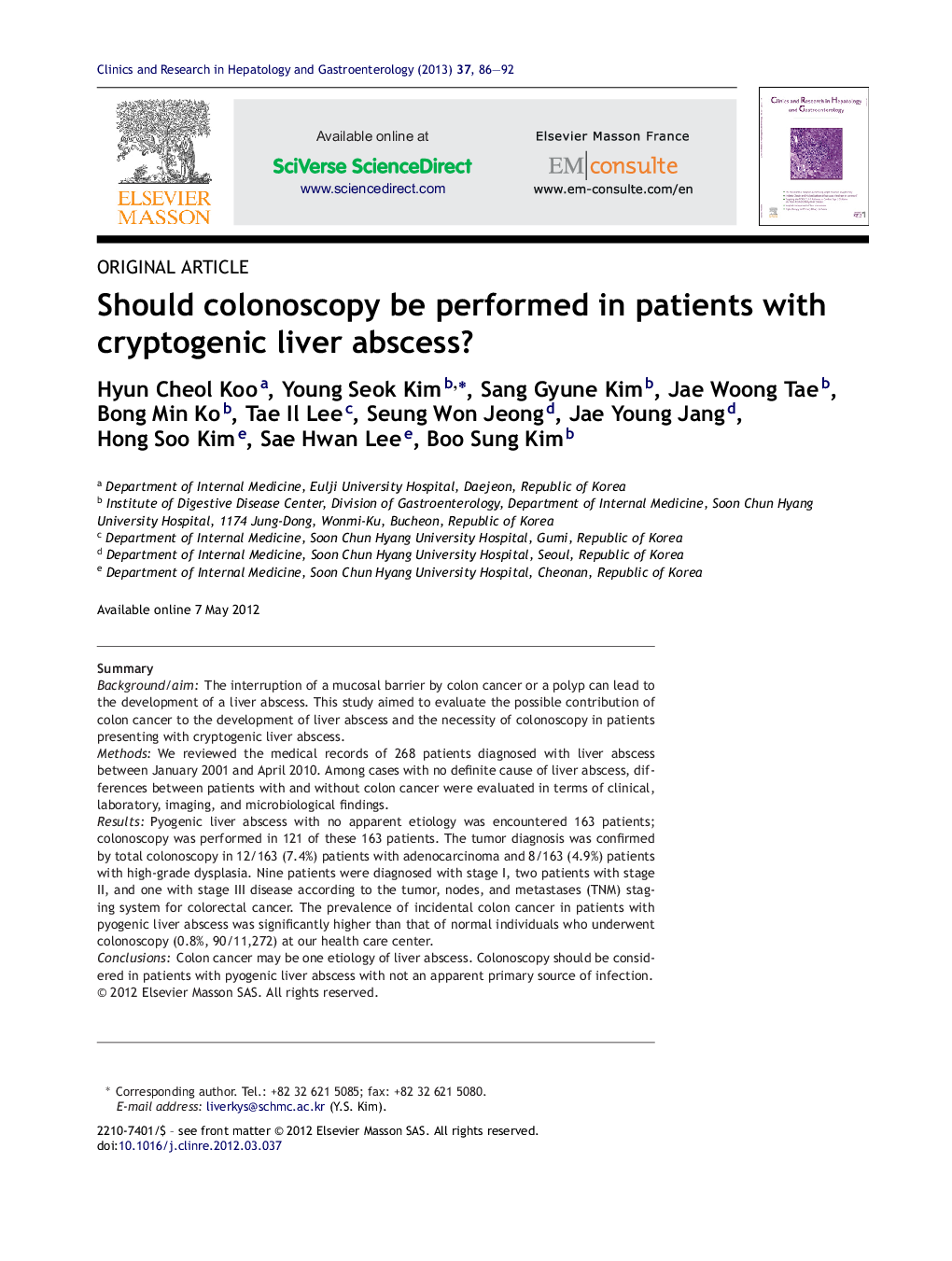| Article ID | Journal | Published Year | Pages | File Type |
|---|---|---|---|---|
| 3286765 | Clinics and Research in Hepatology and Gastroenterology | 2013 | 7 Pages |
SummaryBackground/aimThe interruption of a mucosal barrier by colon cancer or a polyp can lead to the development of a liver abscess. This study aimed to evaluate the possible contribution of colon cancer to the development of liver abscess and the necessity of colonoscopy in patients presenting with cryptogenic liver abscess.MethodsWe reviewed the medical records of 268 patients diagnosed with liver abscess between January 2001 and April 2010. Among cases with no definite cause of liver abscess, differences between patients with and without colon cancer were evaluated in terms of clinical, laboratory, imaging, and microbiological findings.ResultsPyogenic liver abscess with no apparent etiology was encountered 163 patients; colonoscopy was performed in 121 of these 163 patients. The tumor diagnosis was confirmed by total colonoscopy in 12/163 (7.4%) patients with adenocarcinoma and 8/163 (4.9%) patients with high-grade dysplasia. Nine patients were diagnosed with stage I, two patients with stage II, and one with stage III disease according to the tumor, nodes, and metastases (TNM) staging system for colorectal cancer. The prevalence of incidental colon cancer in patients with pyogenic liver abscess was significantly higher than that of normal individuals who underwent colonoscopy (0.8%, 90/11,272) at our health care center.ConclusionsColon cancer may be one etiology of liver abscess. Colonoscopy should be considered in patients with pyogenic liver abscess with not an apparent primary source of infection.
